When the first season of Big Little Lies was announced, the excitement soared with the eagle’s nest. With its stellar star cast, including names like Nicole Kidman, Reese Witherspoon, and Shailene Woodley, and a visionary filmmaker in Jean-Marc Valle at the helm, the show promised big. And big it delivered. A dramatization of Liane Moriarty’s novel of the same name, ‘Big Little Lies’ exceeded expectations and became one of the most successful mini-series ever made. With five Emmys and three Golden Globes, the first season ensured a sequel that is due to premiere in 2019. Although there’s a change in the director’s seat, with acclaimed filmmaker Andrea Arnold swapping Valle, the second season is expected to deliver a similar performance. The addition of veteran Meryl Streep to the cast roster has made the urgency around its premiere even more intense.
Big Little Lies revolves around a murder that takes place at a local trivia night and the subsequent investigation. The narrative turns the clock and delves deep into the personal lives of its main characters of their past lives. Valle intertwines the two timelines with such stunning craftsmanship and originality; the end-product is a dazzling mixture of observant character exploration and gripping tension. The idea of marrying the past and the present isn’t a new notion for Valle. Almost all his films, and other projects, the most recent being the brilliant ‘Sharp Objects’, construct a vivid dream-like space that deals with the idea of a present defined by the past.
Be it Ron Woodroof’s contemplation about unprotected sex at rodeos, or Camille’s insecurity about her mother, Valle always manages to hit the sweet spot. The puzzling visuals that follow suit with Valle are plain-filled with a strong fabric of consciousness. ‘Big Little Lies’ takes on the challenge of presenting multiple timelines for different characters and also sculpts a symbiotic relationship between one character’s past and the other’s present.
‘Big Little Lies’ instantly becomes a must-watch due to its relevant themes. Domestic abuse, rape, and sexual incongruence are heavily drawn upon in the show. Different characters are utilized according to their experiences to represent a victim of heinous crimes. With its vast expanse of cultural and social exposition, ‘Big Little Lies’ becomes a novella-like subject to dissect.
The Plot
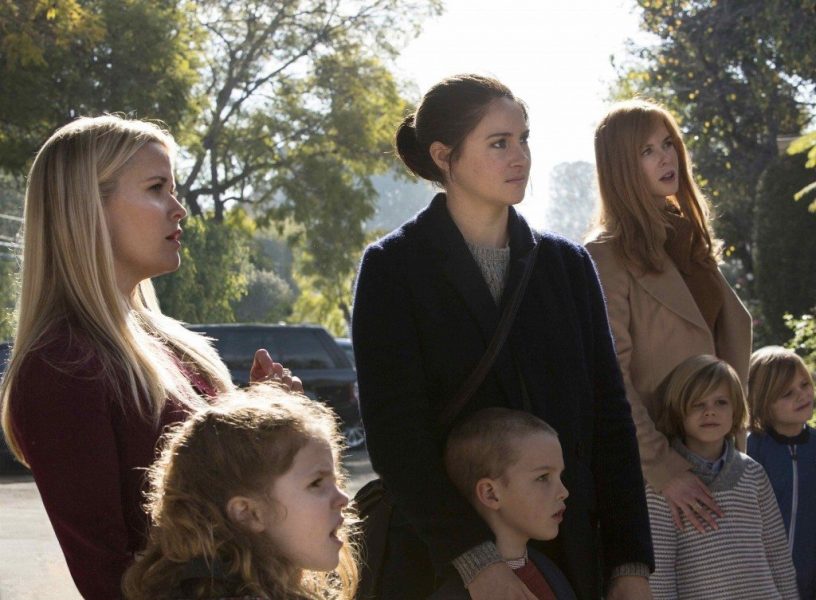
The plot of ‘Big Little Lies’ draws on the life of a small town, Monterey, and its residents. It starts in the present with a murder at a public school. Through the use of flashbacks, the story takes us to the three protagonists, Madeline, Celeste, and Jane, all of whom are talked about by people at the school the night of the murder in the present. While Madeline and Celeste are friends and belong to the town, Jane is an outsider. She is befriended, though, by Madeline, whose cheering and extroverted personality ease Jane into her new life. Jane lives alone with her son, Ziggy. Flashbacks, which often come as disturbing nightmares for her, show Jane as a victim of rape. The child so conceived is Ziggy, whom she decided to give a dignified life.
‘Big Little Lies’ unfurls the mystery of the present through the events leading up to the murder from the past. One element in the series that makes it so deeply impactful is how Valle uses the character’s pasts, within the past timeline, to bring out their turmoil and anguish. Their psychological well-being is tremendously challenged, their smiles scrutinized with a different lens. Be it Celeste’s abusive husband, Perry, who has a volatile temper and constantly beats her up, or Madeline’s fear of loneliness and losing her children, or Jane’s traumatic memories, the protagonists are developed with perfection. Every action they execute is a reflection of their past.
The story proceeds with certain sub-plots involving a clash between parents, especially the mothers Renata Klein and Jane. The final episode answers all the burning questions that the viewer has on the back of their mind. Perry, Celeste’s abusive husband, is revealed to be Jane’s culprit. As he beats Celeste, the other women try to fight him down, albeit unsuccessfully. It is only after Bonnie’s intervention, who is married to Nathan, Madeline’s ex-husband, that they are able to control Perry; by killing him. The detectives accept their version of the story, hesitantly and let them scot-free. They enjoy an afternoon at the beach, as the sun shines once again on their lives.
Feminism
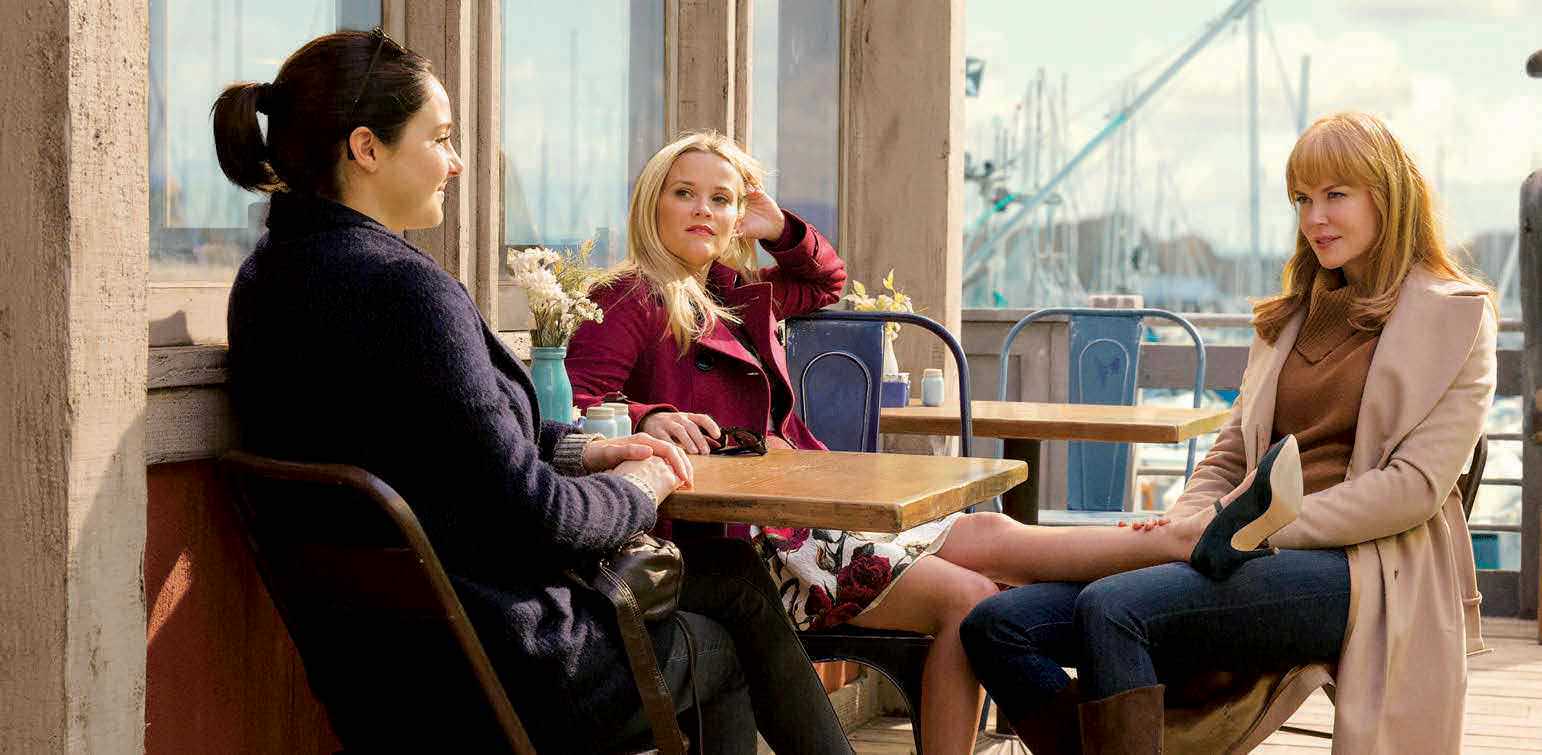
All three leads are presented as emotionally vulnerable, independent thinking, and strong female role models. Despite being victims of their circumstances, Valle makes sure they aren’t looked at with pity or through a sympathetic eye. ‘Big Little Lies’ superbly gauges the contemporary political and social climate in the world, with women struggling to find their place in the hierarchy. Their battle for an equal place as men in the society finds a place at the heart of the series. Witherspoon and Kidman both served as producers for the first season and were lauded for the role they played to free up creator David Kelley to tell the story as he wanted to. The depiction of women in the show is immensely admirable. Instead of entangling itself with clichés and stereotypes, the makers associate their representation with both strength and weakness. Their chequered past is used as their motivation to emerge as emotionally mature and psychologically strong.
‘Big Little Lies’ embodiment of feminism has a beautiful sense of realism to it. It doesn’t serve the mass-marketed version of downgrading the other gender to empower the women. It instead uses the most widely cited weakness, motherhood, to rake the women as role models. Jane is a single mother, caring for her kid with the utmost devotion and sincerity. Madeline is in-charge of her household, treading her kids on the right path. Celeste is a competent lawyer and a caring mother, not bogged down by her husband.
So when you explore the characters played by these women, don’t go looking for chest-thumping sensationalism in the depiction of feminism. What you will find is an intelligent, self-assured, and largely understated current of emotions that define every mother and female across the globe.
Past and the Present
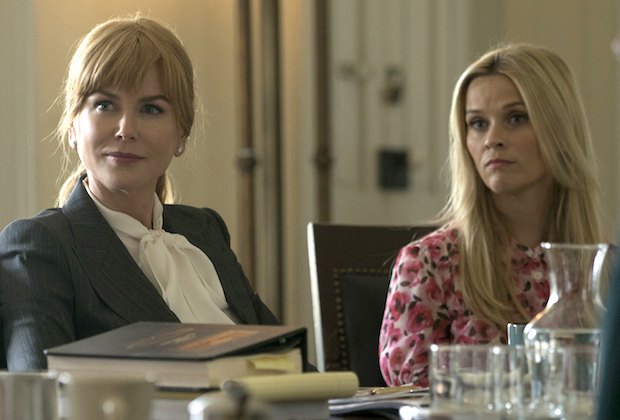
As I mentioned earlier, the most breathtaking quality of Valle’s style is the use of a character’s past to define their present. He has used it to devastating effect before and doesn’t hesitate to use it in ‘Big Little Lies’ heavily. The most ferocious scenes often take shape in the form of bad memories or greatest fears from the past. Jane, played to perfection by Shailene Woodley, is the center of Valle’s lyrical experiment. Her vulnerability, which defined her in the past, is stripped off by her. The innocence and carefree manner in which she led her life seem to be lost in her new self. In the initial few episodes, Jane comes across as a cold, tightly wound, untrustworthy character. She doesn’t let the audience access her, and for the large parts, she is okay with it. She is content being in her guarded space, away from the gaze and drama of others around her. But what Valle does is make an effort to justify her behavior; to give a reason in her resolve to stay aloof from people.
We often see her jogging on the beach, both, as a mother of a child, living alone, and as a wronged teenager, with no meaning in her actions. She runs to forget and remember at the same time; forget the horrible crime she was a victim of; remember how strong she was going through the turmoil. Shailene Woodley evocatively brings out Jane’s internal frustrations and indignation at her life. You can sense, almost firsthand, the discontent energy that surrounds her. As his experiment transforms into a successful thesis, it spreads to other characters.
Celeste’s aching and uncomfortable moments in privacy with her husband, Perry, also have a similar effect. Although the two still share a physically intimate relationship, Perry’s expression of love and his general demeanor towards Celeste come off as gravely problematic. One of the tensest and harrowing moments in the series is when she is beaten black and blue in the bathroom by Perry, and one of her sons walks in. During the shooting, Nicole Kidman actually threw a rock at the bathroom glass after filming the scene, to convey her sense of disgust and angst. It has a similar effect on the audience, who find themselves utterly rattled and disconnected after the scene. It bodes well in explaining how Celeste grows distant of her domestic life, one that feels suffocating and an antithesis to the idea of freedom.
Valle’s interpretation of the link between one’s past and present is simply exhilarating. This technique of his is truly dazzling and replete with raucous energy that humbles. Watching the series, you will definitely come out with a newfound affinity for contemplation and a sense of closure.
Frontier Justice
One aspect that I disliked was the killing of Perry. Or rather how the women escaped any sort of legal repercussions for their actions. The audience is overjoyed when they see him being brought to justice for what he did to Jane and his behavior with Celeste. The almost tribalistic murder throws us back to the times when criminals were publicly hanged to please the crowds. The ordeal took the shape of a spectacle, wrapped in an unfamiliar mystique and serving the popular conscience of good. I feel Perry’s fate, irrespective of his deeds and character, should have been decided by the rule of law. His actions should have been measured on the scales of equitable notions of natural justice, which wasn’t the case here. As much as I and many other viewers despised Perry and his toxic masculinity, he should have gone through the judicial system.
This has been a common and long-standing critique of the medium of film and creative arts. Often its ideas about law and justice get lost on the spirit of the film and the need to empower characters. An unpopular opinion, but needed to be said.
The Ending
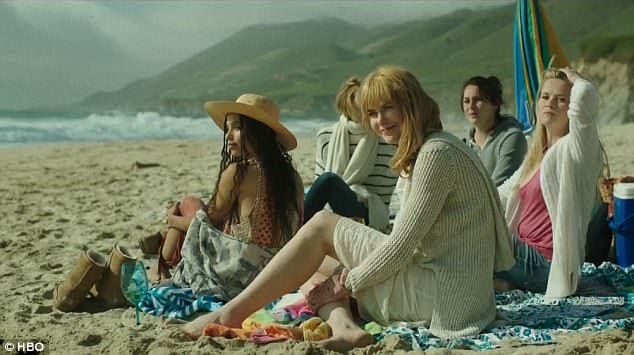
‘Big Little Lies’ ending brings out the society’s collective hypocrisy about its working concepts of equality and rule of law. The last episode of the series reveals a lot. It is high on emotion and finishes the many sub-plots that were weaved into the plot through the show’s runtime. After Ziggy’s suspicious role in Amabella’s choking, it is revealed that Max, Celeste’s son, was the real culprit. The person who raped Jane is revealed to be Perry, Celeste’s husband. Joseph’s wife reveals her knowledge of Joseph and Madeline’s affair. In the midst of all this, the climax sees Jane, Celeste, and Madeline try to fight off Perry. His initial dominance is put to rest by an advancing Bonnie, who pushes him down the stairs, which results in his death.
Many commentators deemed the ending as heroic and empowerment of women. But they don’t seem to realize how hypocritical their stance is. Yes, Perry deserved punishment for what he did to Jane and Celeste. But the manner in which he was served justice was, in my opinion, unjust on the face of it. A subjective scrutiny of the ending might yield a different result. But the essence of it will remain the same. The ending also showcases how trust and love are the fundamental foundations of strong relationships. Madeline breaks down after seeing Ed on stage, overridden with guilt over her affair with Joseph. Throughout the series, we are witnesses to a strained relationship between them. The two often fought and embraced but with a distant, guardedness that didn’t feel intimate. Maybe if Madeline would have talked to Ed about the affair, their understanding could have helped Ed forgive her.
Despite its flaws, ‘Big Little Lies’ finished its first season on a high. With its strong cast to return for a season two, with the addition of Meryl Streep, what can we expect in the second season?
What To Expect in Season Two?
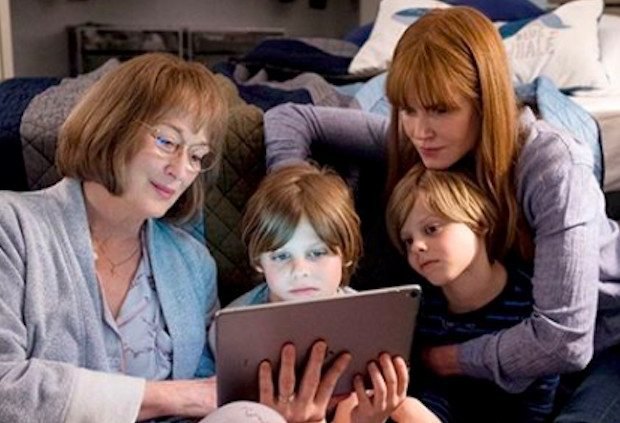
More formidable acting! Streep’s addition to the cast, as Perry’s mother Mary Louise, will definitely add more fire to the already tense mood in Monterey. Season two is expected to focus on the subsequent investigation, which might be reopened corollary to Mary’s arrival, therefore ringing alarm bells for the women. Although it is irresponsible to lay such heavy burden on her, much is expected from director Andrea Arnold. An acclaimed female director, Arnold is known for her strong female-centric indies and has credits such as ‘American Honey’, ‘Fish Tank’, and ‘Red Road’ to her name. It will be a tough task to emulate Valle’s efforts, but as far as we know of Arnold, she will take the challenge on the chin.
Read More in Explainers: Breaking Bad | Sharp Objects | Mindhunter


You must be logged in to post a comment.